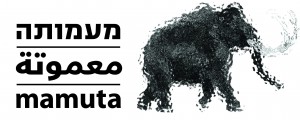Home

A Year long program for youth in the Education Lab
Conceptual introduction
The program will teach technology as an everyday practice in the lives of the participants, through which they can understand their potential for setting in motion social, civic, and creative processes in the public space and in the specific context of Jerusalem. It seeks to create the conditions in which the participants, 15- to 17-year-old living in Jerusalem, can turn from user-consumers to user-creators.
About the project
This project is based on the links between art, media and geography as a political, social, economic and pedagogical force. It seeks to create the conditions by which participants will be able to take active part in re/producing the physical and virtual public domains through art and creative use of multimedia. By doing so, they will grow deep understanding of existing mechanisms and will be able to address them with independent and creative alternatives. The program will be based on open-source in spirit and practice, using this sphere of participation and collaboration as its infrastructure and central methodological component.
An interdisciplinary series of workshops will be given by artists and creators in the fields of media, geography, urban planning, and technology. The participants will construct a website—the project’s home site. The “home site” and the “home,” as a physical and conceptual site, will be a starting point for the examination of concepts such as belonging, ownership, privacy, and participation in the specific geography of Jerusalem. A creative approach to mapping will allow the group to locate the private space—the house and familiar surroundings of every one of the participants—in a broad urban context, in an attempt to locate common ground. Is it possible to find or re-invent spaces of participation that overcome the barriers of the urban space in Jerusalem? Through a process of idiosyncratic, non-conventional mapping, we will try to reread the city and to locate spatial narratives that cannot be easily observed in daily life experience.
The second half of the year will be dedicated to the development of an intervention project in public space, a replanning of a particular site/s as shared space/s, based on the skills and new understanding of the shared urban space, attained during the first half. Although we aim to lead to a planning of a common site, the actual implementation and concrete results remain to be seen, since it is in defiance of the contemporary geopolitical reality in which such a space in fact doesn’t exist. Therefore, based on the participant-led process, it is possible that the process will lead to the joint planning of different sites.
The project will use “common” technologies such as cellular phones, smartphones, home video cameras, GPS, simple recording devices, etc, allowing the participants access and understanding of such technologies as an independent and creative tool in everyday life.
Program developer: Hagit Keysar. Partners and consultants: Lea Mauas, Diego Rotman, Yuli Khromchenko, Shuli Hartman, Talya Zeligman, Shai Efrati and the Mֿamuta collective.
Please visit: http://mamuta.org/edulab
SUMMER WORKSHOP 2010 BY MAMUTA’S EDULAB
[To the website of the project and films click here]
Between the 1st and 5th of August 2010, a summer workshop was held in the Mamuta Art and Media Center, as a pilot for the program Home:Site.
The workshop was based on the OneMinuteVideo model and was led by Yossi Atia, in cooperation with Hadassa Goldvicht, Asma Abuwasel, Guy Yitzhaki, Hagit Keysar, Noam Shpigler and Lael Kline. Coordinator, Hagit Keysar.
The program Home:Site (due to begin in 2011) seeks to create the conditions by which youth participants from Jerusalem, will be able to take an active part in re/producing the physical and virtual public domains through art and creative uses of multimedia.
More about Home:Site can be found here.
The summer pilot was done in cooperation with YMCA youth groups, many thanks for the great meals made by Hila Gootriman and Dana Mizrahi. All was made possible with the support of Diego & Lea (Sala-Manca Group) and Tsah Yahav in the education department of The Jerusalem Fund.
More photos from the workshop here.
http://mamuta.org/edulab/


